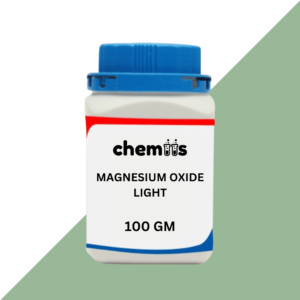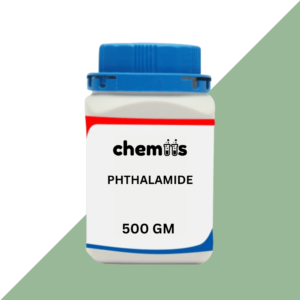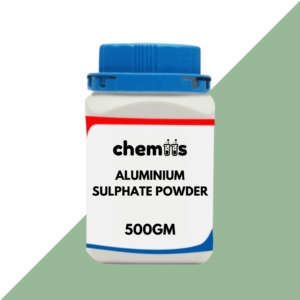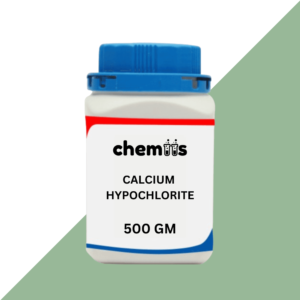Potassium Carbonate (K₂CO₃), commonly known as potash or pearl ash, is an inorganic compound that appears as a white, odorless powder. When anhydrous, it is free of water, making it a powerful and efficient chemical used in various industries. Potassium Carbonate Anhydrous has diverse applications in manufacturing, agriculture, food production, and cleaning products due to its basic nature and solubility in water. It is often utilized as a reagent in chemical synthesis, as a pH regulator, and in the production of glass, soap, and detergents.
Applications
1. Chemical Synthesis and Reagent
Potassium Carbonate Anhydrous is widely used in chemical laboratories and industrial settings as a reagent in the synthesis of a variety of chemicals. Its alkaline properties make it an ideal catalyst or medium for reactions, especially in the production of potassium salts, soaps, and fertilizers.
Uses:
- Catalyst in the production of potassium salts
- Reagent in the preparation of other chemicals
- Used in the synthesis of potassium bicarbonate, potassium nitrate, and more
Benefits:
- Increases the efficiency of chemical reactions
- Highly soluble and reacts quickly in the presence of water
- Plays an important role in the production of essential chemicals
2. Manufacturing of Glass and Ceramics
Potassium Carbonate is a key ingredient in the production of glass, ceramics, and enamel products. It is used as a flux in glassmaking to lower the melting temperature of silica. Additionally, it helps to enhance the strength and clarity of glass.
Uses:
- Flux in glass manufacturing
- Component in ceramic glazes
- Used in the production of enamel coatings
Benefits:
- Improves the quality and clarity of glass
- Reduces the energy required for glass melting
- Provides strength and durability to ceramic products
3. Agriculture (Fertilizer Production)
In the agriculture industry, Potassium Carbonate is used as a source of potassium, an essential nutrient for plant growth. It is often incorporated into fertilizers to improve soil fertility and promote healthy plant development.
Uses:
- Fertilizer in agricultural applications
- Improves potassium content in soil for better crop yields
- Balances soil pH and enhances nutrient absorption by plants
Benefits:
- Enhances plant growth and fruit production
- Increases crop yields by providing essential nutrients
- Helps improve soil structure and fertility
4. pH Regulation in Cleaning Products
Potassium Carbonate Anhydrous is commonly used as a pH regulator and cleaning agent in household and industrial cleaning products. It helps to neutralize acidic substances and enhance the effectiveness of detergents and soaps.
Uses:
- pH adjuster in cleaning products
- Component in soaps and detergents
- Enhances the cleaning power of household and industrial cleaners
Benefits:
- Helps maintain an optimal pH balance in cleaning products
- Acts as a softening agent for water, improving cleaning effectiveness
- Increases the performance and longevity of cleaning solutions
5. Food Industry (Food Additive)
In the food industry, Potassium Carbonate is sometimes used as a food additive, primarily as an acidulant or to regulate pH levels in certain food products. It can also act as a stabilizing agent in baking powders and a leavening agent in food preparations.
Uses:
- pH regulator in food products
- Leavening agent in baked goods
- Used in food processing as a stabilizer
Benefits:
- Maintains optimal pH levels in processed foods
- Aids in the texture and rise of baked goods
- Enhances the quality and stability of food products
Safety and Handling
Safety Precautions
Potassium Carbonate Anhydrous is a strong alkaline substance and can cause irritation to the skin, eyes, and respiratory system. It should be handled with care, and appropriate personal protective equipment (PPE) should be worn at all times.
- Personal Protective Equipment (PPE): Wear protective gloves, safety goggles, and appropriate clothing when handling Potassium Carbonate. In cases where dust is generated, use a dust mask or respiratory protection.
- Storage: Store in a cool, dry, well-ventilated area, away from incompatible substances, such as acids or strong oxidizing agents. Keep containers tightly sealed.
- Handling: Avoid creating dust, as it can irritate the respiratory tract. Always handle the chemical in a well-ventilated area to prevent inhalation of fumes or dust.
First Aid Measures
- Skin Contact: If contact occurs, wash the skin immediately with soap and water. Seek medical attention if irritation persists.
- Eye Contact: In case of eye exposure, flush the eyes with water for at least 15 minutes. If irritation continues, seek medical help immediately.
- Inhalation: Move the affected person to fresh air. If respiratory distress persists, seek medical attention promptly.
- Ingestion: If swallowed, rinse the mouth with water and seek medical advice. Do not induce vomiting unless directed by a medical professional.
Environmental Considerations
Potassium Carbonate is generally safe for the environment in small quantities. However, large-scale spills can alter the pH of water bodies, potentially harming aquatic life. Always follow local guidelines for disposal and avoid releasing large quantities into the environment.
Regulatory Considerations
Potassium Carbonate is generally recognized as safe (GRAS) for use in certain food and industrial applications. However, it is subject to regulatory oversight in many countries. Always check the specific regulations for your region or industry to ensure compliance with health and safety standards.








Ishaan Nayak (verified owner) –
Great experience overall.
Kripa Mehta (verified owner) –
Easy to communicate with.
Meenal Shah (verified owner) –
Worth every rupee.
Pranav Agarwal (verified owner) –
Product arrived on time.
Vipin Giri (verified owner) –
Easy to reorder.
Rachna Kulkarni (verified owner) –
Website is easy to navigate.
Aditya Rawat (verified owner) –
Trustworthy platform.
Dinesh Bhardwaj (verified owner) –
Excellent service overall.
Jayant Mishra (verified owner) –
Delivered safely and quickly.
Manju Devi (verified owner) –
Product quality is top-notch.
Jayant Mishra (verified owner) –
Neatly packed items.
Snehal More (verified owner) –
Received in perfect condition.
Devansh Kulkarni (verified owner) –
Great for lab use.
Aman Sheikh (verified owner) –
Clear product details.
Snehal More (verified owner) –
Product quality is top-notch.
Suraj Barman (verified owner) –
Items exactly as ordered.
Bhavana Rao (verified owner) –
Great for science students.
Jayant Mishra (verified owner) –
Very fast delivery.
Avni Kapoor (verified owner) –
Amazing response time.
Ishita Paul (verified owner) –
Fast response to queries.
Isha Roy (verified owner) –
Will definitely order again.
Rahul Verma (verified owner) –
Easy to communicate with.
Deeksha Iyer (verified owner) –
Professional service.
Bhavika Shah (verified owner) –
Reasonably priced.
Devika Pillai (verified owner) –
Highly recommended.
Sahil Chhabra (verified owner) –
Good support for queries.
Nandini Kaul (verified owner) –
Easy to find what I wanted.
Deepak Singh (verified owner) –
Great customer support.
Sneha Iyer (verified owner) –
Hassle-free experience.
Kanika Luthra (verified owner) –
Quick and safe delivery.
Karan Desai (verified owner) –
Ordering was easy.
Neha Kaur (verified owner) –
Easy to communicate with.
Ishaan Nayak (verified owner) –
Found what I was looking for.
Namrata Bansode (verified owner) –
Crystal clear instructions.
Abhay Saxena (verified owner) –
Neatly delivered.
Varun Raghavan (verified owner) –
Perfect for my needs.
Prateek Saxena (verified owner) –
Quick and safe delivery.
Ayesha Rizvi (verified owner) –
Products are exactly as described.
Sneha Iyer (verified owner) –
Neatly packed items.
Ananya Joshi (verified owner) –
Neat and secure packaging.